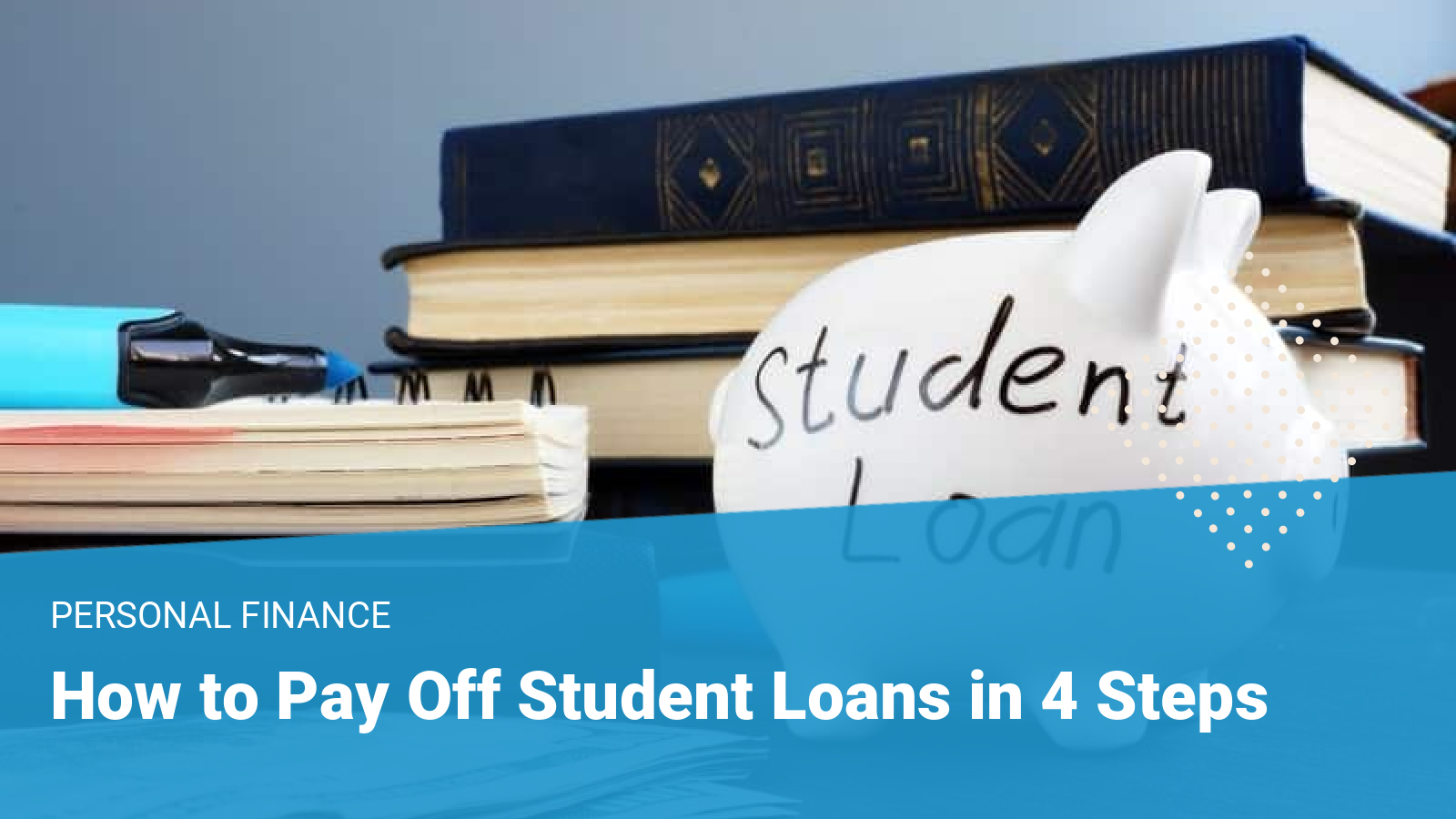How to Pay Off Student Loans in 4 Steps
Most graduates leave college with high hopes that their new job will pay off their student loans. Unfortunately, this is not always the case.
Student loan debt in the U.S. totals more than $1.7 trillion. As of July 2022, the average public university student borrows $32,880 for a four-year degree.
This number is $37,787 for a private, non-profit university student and $42,551 for those who attend a private, for-profit university.
Another study found that 42% of students at public universities finish their four-year degree without any student loan debt. An additional 36% graduate with less than $30,000 in debt. Meanwhile, 7% graduate with debt of more than 50,000.
The good news is that it is possible to pay off student loan debt and move into a more financially independent future. However, it’s going to take some planning and budgeting to get there.
If your goal is to pay off student loan debt, we have some actionable steps that will get you there.
How to Pay Off Student Loans Fast – 4 Steps
Keep living like a student
Most people try to live within their means, and students typically don’t earn much money. Living within your means in this case would mean being careful with spending and avoiding or limiting luxuries.
One way to knock your student loan debt down quickly is to continue to live like you earn the same money you did as a student. Once you have secured a job, put all available extra income directly towards paying off your student loan.
This is not necessarily a long-term solution, but it can do wonders in helping you to reduce your debt load quickly.
Increase your payment amount
Here is an example to show how big of a difference this can make. Let’s say you graduated with a loan of $32,600 and wanted to pay it off in 10 years. Given the current interest rate of 4.99% for undergrad loans, it would cost you $345 per month. Once you finish repayments, you will have paid over $8,800 in interest alone. That is if you don’t default on any payments over the entire ten years.
Now let’s look at what would happen if you increase your monthly repayments to $615. In this case, you will pay off your loan five years earlier and save nearly $4,600 in interest payments. Pay as much as you can from every paycheck.
Consolidate your loans
If you have multiple loans from private lenders, chances are you could be paying excessively high interest. One way to reduce the amount of interest you pay on your student loan debt is to refinance your loans through a consolidation lender.
Loan consolidation doesn’t always help you pay the loans off any faster, but it does create a clear and concise path for your debt repayment.
If you have a federal loan, odds are high that your interest rates are as reasonable as they are going to get. In this case, consolidation probably wouldn’t be a good move.
Refinancing through loan consolidation is an excellent option if you have loans from private lenders. Our personal loan calculator helps you compare multiple lenders at once, connecting you to the right company in seconds. Let us do the research for you.
Increase your income
Get a side hustle! One of the best ways to pay off student loans is to increase your income. Working one extra night per week could take years off your student loan payments.
Get creative with what services you have to offer. It could be anything from tutoring part-time to working a second job. You won’t have to do it forever, but it will help you pay down your loan faster.
How Long Does It Take to Pay Off Student Loans?
If you are a student who graduated with a federal loan the most common repayment timeline is known as the Standard Repayment Plan and is 10 years.
However, you can adjust the plan if you need a more flexible schedule.
Federal student loans offer three different repayment plans:
- Standard Repayment Plan: You repay a fixed monthly amount for 10 years*.
- Graduated Repayment Plan: Monthly payments start out low and increase gradually over time. The increases are typically every two years. Payments are completed in 10 years*.
- Extended Repayment Plan: Graduated or fixed payments for 25 years.
*Up to 30 years if you have a Direct Consolidation Loan.
Private student loans will have different repayment terms, depending on each lender. Typically, private student loans are repaid within five to 20 years.
If you have any tips or suggestions or can share ways you have paid off your student loan quickly, comment below.
FAQs
How long will it take to pay off my student loan?
This depends on the type of loan you have and how you manage your payments. Private student loans are typically paid off within 20 years, while federal student loans are repaid between 10 and 30 years.
By increasing your payments and following the tips above, you can reduce the time you take to pay off your student loan.
When do you start paying back student loans?
If you have a federal student loan, you typically need to start paying back your loan when you graduate, leave school, or drop below half-time enrollment.
In some cases, you can get a grace period of up to nine months for certain types of loans, including a Federal Family Education Loan or a Perkins Loan.
Sources
- Education Data Initiativeaccessed on December 15, 2022





